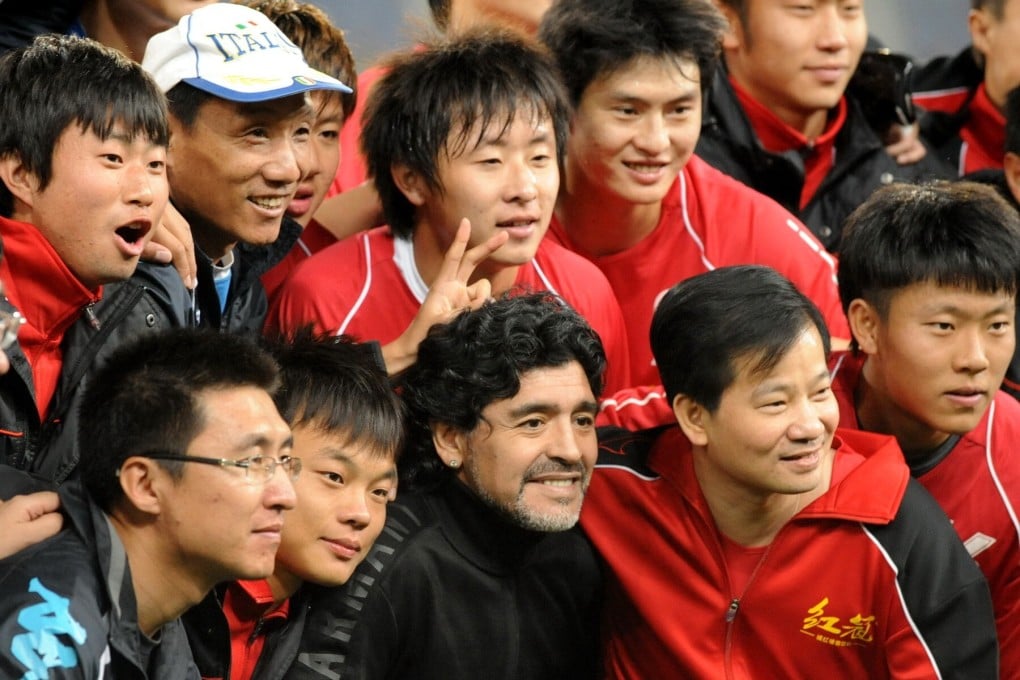Maradona in China: when Deng Xiaoping invited him to play in Beijing and footballer turned the Chinese leader down
- Deng Xiaoping invited the Argentinian in 1987, but Maradona would not come unless he got 300 million lira, about US$230,000 at the time, according to a source
- Chinese fans across the country are mourning the death of the ‘king of football’, with the topic generating more than 1.5 billion views on Weibo already

Like those elsewhere, Chinese football fans are mourning the death of Argentinian soccer icon Diego Maradona, who was widely known as one of the greatest players of the game – not least to late Chinese leader Deng Xiaoping.
Deng, who led China from 1978 until 1989, once invited Maradona to play in China. The offer was conveyed in 1987 during a business meeting between China’s state-owned Citic Group and former Italian prime minister Romano Prodi, then the head of Italy’s state-run Institute for Industrial Reconstruction.
But Maradona was unmoved by the proposal, saying that he would not come unless Beijing paid him 300 million lira, roughly equivalent to US$230,000 at the time.

04:04
Argentinian football legend Diego Maradona dies of heart attack at age 60